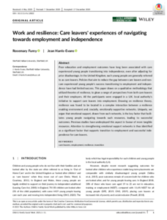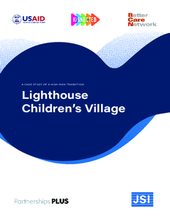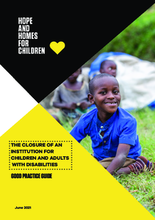Displaying 161 - 170 of 949
This paper draws on a qualitative methodology that utilized theories of resilience, to glean a range of perspectives from both care leavers and their employers.
The purpose of the study is to analyze and define the content, specifics, and procedures of social and psychological work with citizens who have expressed a desire to become mentors for orphans.
This article presents descriptive information on the 25 families that enrolled and received Success Coach services and 38 families in a control group using data from baseline and follow-up surveys and administrative data to examine safety, placement stability, and well-being.
This paper explores how young people who have been in out‐of‐home care develop a positive agentic capacity.
This article presents the case for an independent care leaving policy in Ethiopia to address the multifaceted needs of children in care and improve the care leaving service in the country.
This article combines insights from Beck’s individualization theory and Crenshaw’s intersectionality theory to enhance understandings of why youth transitioning out of the child welfare system experience risk of poor outcomes.
This study aims to explore the experiences of Ghanaian care leavers to discern the factors that promote and impede their educational attainment.
Lighthouse Children’s Village was established in 2004 as a privately-run and privately-funded residential care institution. In 2014, its long-time principal donor made the decision to phase out of financially supporting institutional care. This case study highlights some of the early warning signs and subsequent discovery of unethical and criminal behavior that can sometimes be observed in a transition process.
This document outlines 5 key steps that serve as an effective blueprint for a successful reintegration process of children and disabilities. These include ‘engagement’, ‘Assessment’, ‘Design & Development’, ‘Transition’, and ‘Monitoring & Evaluation’.
This review aims to synthesise recent research on informal network support for care leavers making the transition to adulthood.





